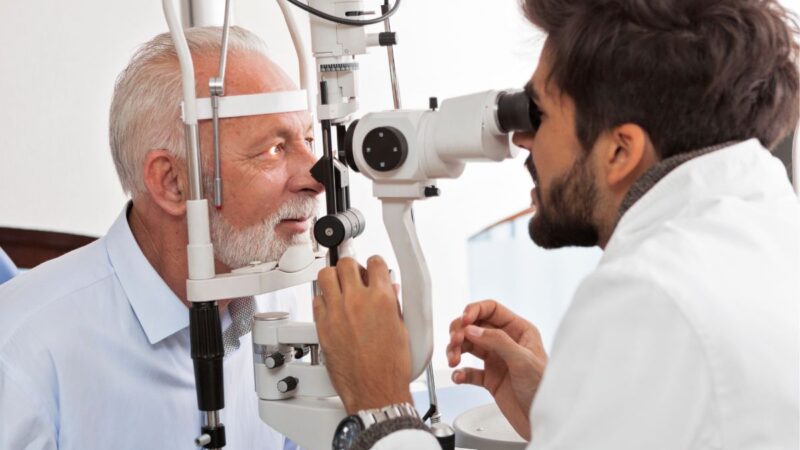
Following fantastic efforts of our Brighton and Sussex Diabetic Eye Screening team, crucial eye screening tests have resumed to pre-pandemic levels and the team are raising awareness for diabetic eye screening during National Eye Health Week (19th to 25th September).
Diabetic eye screening is an important test to check for eye problems caused by diabetes. It can help detect any changes early and prevent significant damage to eyesight, including sight loss.
A pause in screening for several months during the first wave of the pandemic followed by social distancing restrictions once the service resumed, meant there was a huge number of people with diabetes across the country waiting to be seen.
Kevin Cramer, 72, from Lewes was diagnosed with borderline diabetes three years ago, a condition that can develop before a person gets type two diabetes. He now has to monitor his condition, which includes regular eye screenings.
He said: “I was worried about my first screening and was expecting the worst, but the nurse was so kind and considerate and explained everything.
“My results were clear and afterwards they told me they would see me in a year and then of course the pandemic got in the way. It was around 18 months to two years until my next screening. I didn’t panic too much because I had a clear result previously but thankfully my last test came up negative, so I’m pleased for that.”

In October 2021, when Buki Asanbe joined University Hospital Sussex NHS Foundation Trust as the Brighton and Sussex Diabetic Eye Screening Programme Manager, more than 28,000 people were waiting for an eye screening appointment across Brighton and Sussex.
Under her leadership, the team became one of the fastest improving services across the country to recover from the impact caused by the pandemic, having successfully cut the number of eligible people waiting for an eye screening appointment from 68% in October 2021 to zero by the end of March 2022.
She said: “Over the last few months, the team have worked incredibly hard to streamline processes and increase screening capacity by 33%, ensuring everyone who is eligible for screening is seen as soon as possible. I have also worked hard to improve the team’s morale, encouraging and building on their commitment to our patients and their colleagues and proving what successes they are able to achieve.
“As a result of their outstanding efforts, we had a great end to the year by being able to restore the service back after the effect of Covid-19. We reached and exceeded the national target for people with diabetes attending their screening appointment at 80% uptake. I am so proud of what this team has managed to achieve in such a short time.”
Kevin added: “This screening has the ability to let me know if there’s anything wrong, that’s the golden bullet of this service. It’s good protection and 20 minutes’ worth doing. It’s like having a guardian angel over me, helping let me know if there’s a problem.”
The Kent, Surrey and Sussex NHS England Public Health Team commended Buki’s leadership and expressed their appreciation for the team’s efforts.
They said: “Buki Asanbe has galvanised and reinvigorated the team. She demonstrates remarkable leadership skills in supporting and guiding her team, which in turn shows impressive resilience and agility. We would like to express our sincere appreciation, admiration and gratitude for all the on-going efforts that the team has put in this year, and throughout the pandemic.”
Buki is now involved in helping other programme managers across the country improve their service’s performance.
Everyone over the age of 12 diagnosed with diabetes will be offered a diabetic eye check every year at their local screening programme unless they are already under the care of an eye hospital service for their diabetic eye care.
Your eye health is incredibly important so make sure to book your eye screening test when you receive your letter.